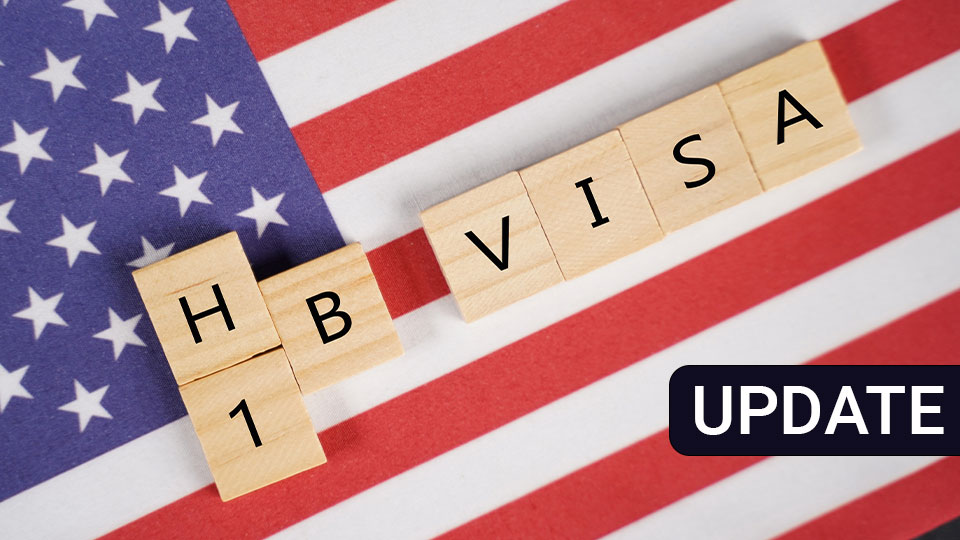Immigration & Business
Articles
Our experience

USCIS Rolls Out New Alien Registration System: Navigating the New Form G-325r and compliance essentials
The U.S. government recently has refocused their attention on alien registration. Effective April 11, 2025, the Department of Homeland Security (DHS) will require all non-citizens to comply with updated Alien Registration obligations under Section 262 of the Immigration and Nationality Act (INA), applicable regulations at 8 CFR Part 264, and

IMMIGRATION ALERT: Department of State revokes student visas and Department of Homeland Security terminates Student and Exchange Visitor Information System records
“International students bring enormous benefits to our nation, working on important research, adding innovation and creativity as well as perspectives to our college campuses. The American people must come together and call on Congress to rein in these abuses of power and right these wrongs” Kelli Stump AILA President Executive

Trump Gold Card Visa
In February 2025. President Donald Trump proposed a new “Gold Card” to replace the EB-5 Visa program. It was designed to offer wealthy foreigners a direct path to U.S. citizenship in exchange for 5 million dollars in payments to the U.S. government. The goal for these individuals is to relocate

New Jersey’s New Tax Rule: Unpacking the ‘Convenience of the Employer’ Regulation and its Implications
On July 21, 2023, New Jersey passed a new bill, introducing the “convenience of the employer” rule. The objective of this bill is to boost tax revenue by targeting nonresidents assigned to work primarily in New Jersey who opt to work remotely outside the state for their personal convenience.[1] The

The Impact of Groff v. Dejoy on Religious Accommodations and Seniority-Based Bidding Systems in the Workplace
The U.S. Supreme Court’s Groff v. DeJoy ruling, issued in June, has significant implications for employers’ handling of religious accommodations under Title VII of the Civil Rights Act.[1] The decision establishes a more rigorous standard for employers to deny such accommodations, while preserving the unique protections afforded to seniority systems

Staffing Companies Beware: New Jersey’s Landmark Temporary Workers’ Bill of Rights is Here to Stay!
In February 2023, Governor Phil Murphy enacted the Temporary Workers’ Bill of Rights.[1] This labor law aims to protect temporary workers, who the state identified to be often underpaid and significantly less likely to receive employer-sponsored benefits when compared to permanent workers.[2] The law imposed new requirements on both companies

New Jersey Employment Law Update: Employers must start reporting separation directly to the State of New Jersey
Last year, Governor Phil Murphy signed into law significant changes to the state’s Unemployment Compensation Law, which took effect on July 31st, 2023.[1] Among these changes are two brand-new reporting obligations, altered deadlines for appeals, and enhanced fines for noncompliance.[2] The critical takeaway for most employers is the new reporting

Update: USCIS Announces Second Round of Random Selections for FY 2024 H-1B Cap Registrations!
Earlier this year, the United States Citizenship and Immigration Services (“USCIS”) conducted a random selection process for the fiscal year (“FY”) on the 2024 H-1B cap registrations. During this initial process, USCIS selected certain electronic registrations that met the requirements for the H-1B visa, including beneficiaries eligible for the advanced

NEW YORK WAGE AN HOUR UPDATE: NY Bill Expands Wage Complaint Rights for Executive, Administrative, and Professional Workers
Last month, the New York Legislature passed a bill which, if accepted by Governor Kathy Hochul, would expand the rights for executive, administrative, and professional employees to file complaints with the New York Department of Labor (“NYDOL”) for wage theft.[1] Wage theft occurs when pay earned and owed to an

New York’s Freelance Isn’t Free Act And Its Impact On Businesses
Last month, the New York State Legislature passed the Freelance Isn’t Free Act (“Act”), a labor law ensuring protection for freelancers, contract workers, and independent contractors working in New York.[1] This Act is one of the strongest laws protecting “gig workers” and freelancers in the country and is an expansion


